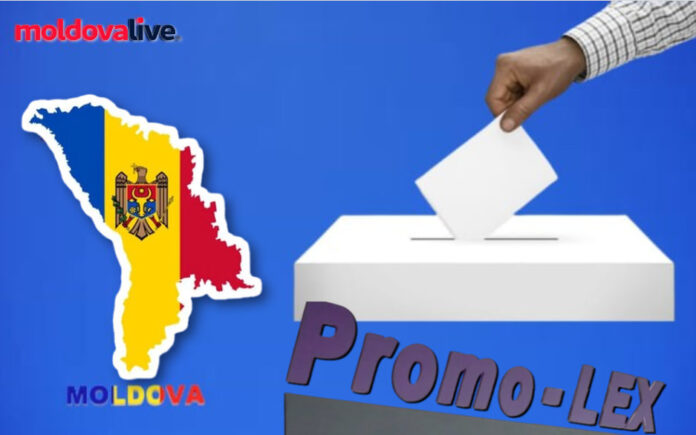Electoral advertising on social media played a key role in Moldova’s 2024 election campaign, but its use raised serious concerns about transparency and legality. More than 35% of all promotional activities took place online through sponsored posts, Google Ads, and promoted videos. As digital campaigning grows rapidly, one critical question remains: who funds online electoral ads? The final report of the Promo-LEX Election Observation Mission for the presidential election and constitutional referendum on October 20 (November 3), 2024, presents these findings. Promo-LEX will release the report on February 19 at the 2025 Electoral Forum.
Promo-LEX found that the 2024 campaign was one of the most digitalized in Moldova’s history. Electoral competitors reported spending about 5 million MDL on online promotion, making up 35% of all observed campaign activities. PAS and Maia Sandu accounted for most online activity (36%), followed by Renato Usatii (PN – 11%) and Alexandr Stoianoglo (PSRM – 8%).
However, the real source of these funds remains unclear, especially for anonymous pages promoting electoral content. Promo-LEX estimated that competitors failed to report over 400,000 MDL spent on online advertising.
Weak monitoring mechanisms make it nearly impossible to track campaign financing through digital ads. Google Ads, including YouTube promotions, does not provide electoral spending reports, and Facebook’s reports often fail to reveal the real sponsors of paid ads. Moldova’s laws also lack clear rules for online political advertising, allowing candidates to bypass campaign financing regulations and putting the fairness of elections at risk.
FOR THE MOST IMPORTANT NEWS, FOLLOW US ON TWITTER!
Promo-LEX observers found that a large volume of electoral content spread through fake accounts or anonymous pages, a problem also seen in past elections. While candidates must report campaign expenses to the Central Electoral Commission, the absence of clear regulations for digital advertising on platforms like Facebook and Google increases the risk of voter manipulation and disinformation.
The report also highlights how candidates engaged in electoral activities before the official campaign period. Between August 21 and September 20, 2024, at least 15 individuals announced their presidential candidacies, but many started their promotional campaigns—both online and offline—long before the official process began.
Promo-LEX warns that this practice gives some candidates an unfair advantage and allows them to avoid strict campaign financing rules. Observers identified eight competitors who conducted covert electoral activities before the official campaign started. During the constitutional referendum campaign, several civic organizations and apolitical groups also ran promotional campaigns, even though current laws only allow political parties and electoral blocs to engage in such activities.
To increase transparency and fairness in future elections, Promo-LEX recommends new legislation to regulate political and electoral advertising online, require social media platforms to disclose sponsored campaign funding, and set clear rules for third-party financing in electoral campaigns.
The report emphasizes that these measures would improve election transparency and fairness, reducing the risks of online campaigning in an unregulated digital space. Without reforms, future elections could become vulnerable to manipulation by unknown actors, threatening democracy and electoral integrity in Moldova.



